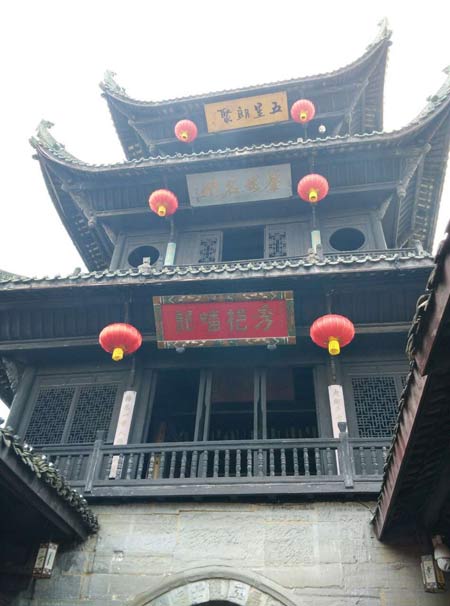Snapshot of authenticity
By Liu Lu ( China Daily ) Updated: 2015-07-18 08:12:08
 |
|
Photo by Liu Lu / China Daily |
With its long history, beautiful landscape and rich cultural heritage, Langzhong is known as one of China's top four ancient towns, along with Yunnan's Lijiang, Shanxi's Pingyao and Anhui's Shexian county.
Unlike many other overly commercialized ancient towns in China, Langzhong comes closest to answering what a county would have been like a thousand years ago. Even though the main road in the town is touristy, the atmosphere there is much more authentic. Walking along the side streets you will see local people living their everyday lives and not just shops or restaurants for tourists.
You will not find pretty bridges or flowing streams like those in Yunnan's Lijiang or some old towns in eastern China. There are no ethnic minorities, but its embrace of the Jialing River and the residential architecture adequately present its uniqueness.
The well-preserved ancient architecture is one of the charms of Langzhong. The layout and design of the town are in accordance with the Feng Shui geomantic principles laid down during the Tang Dynasty (AD 618-907). The ancient streets and lanes are like lines on a chessboard. They link with one another, and all lead to the Jialing River.
The town has about 90 streets and lanes, one-fifth of them built in the Tang and Song dynasties (960-1279), and courtyard houses topped with the famed grey-tiled roofs and upturned eaves. Most of other buildings were built during the Qing dynasty (1644 - 1911).
As rickshaws can be easily found in the main streets, you may take a ride in the streets and you can stop to take photos and visit some old family courtyard homes.
It is best to stay at least two days to immerse yourself in the historical feel of the ancient city. Most attractions in the town charge admission fees. If you want to visit them all, buy a package ticket at the ticket office.
|
|
|
|
|
|
|
|

























 Raymond Zhou:
Raymond Zhou: Pauline D Loh:
Pauline D Loh: Hot Pot
Hot Pot Eco China
Eco China China Dream
China Dream China Face
China Face






